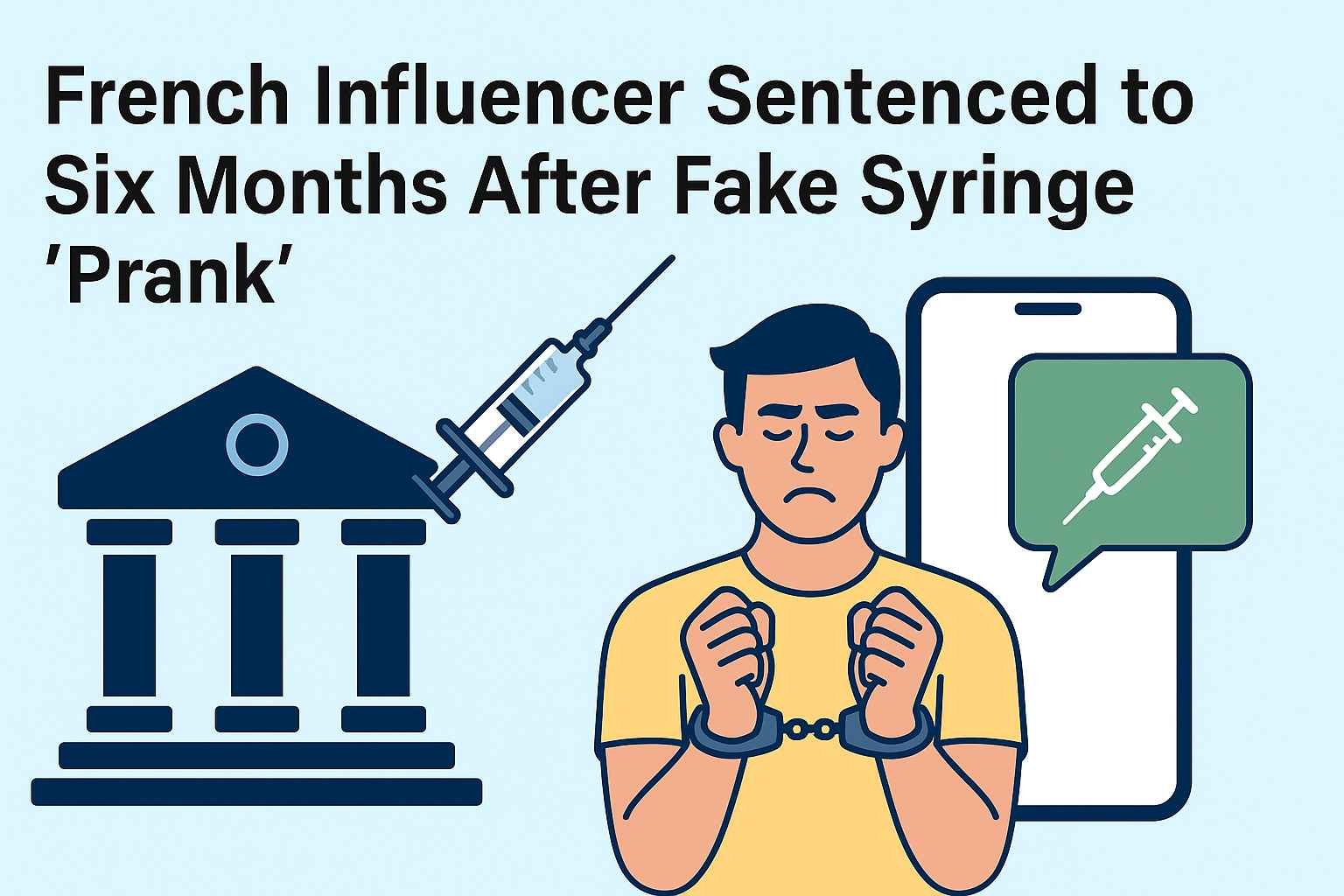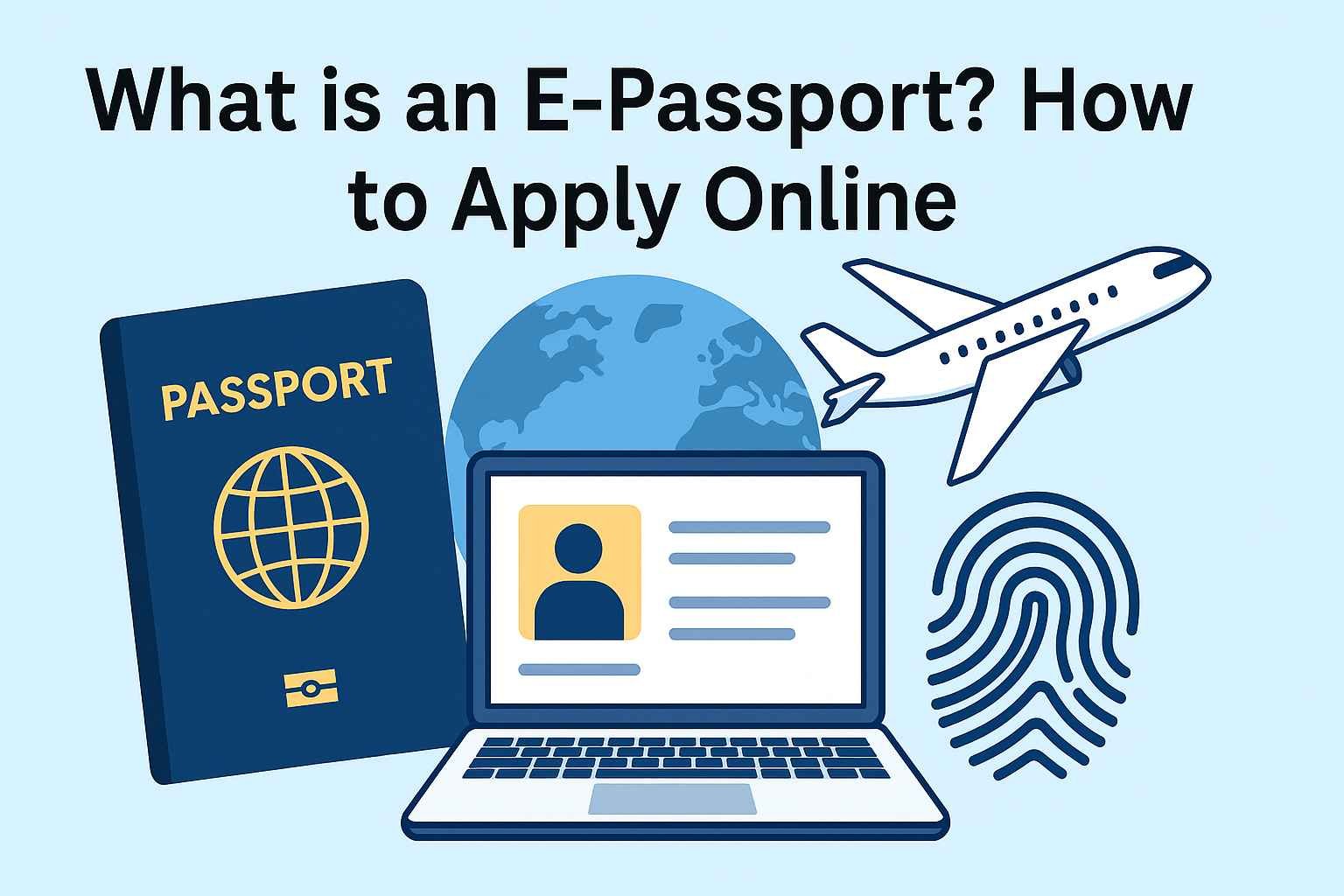On this page you will read detailed information about French Influencer Sentenced to Six Months’ Prison Over Fake Syringe “Prank”.
In a widely reported ruling in October 2025, Amine Mojito (real name Ilan M.), a French social media influencer, was sentenced by the Paris Criminal Court to 12 months in prison, with six months suspended—effectively six months to serve in jail—for staging a fake syringe injection prank.
The court convicted him of “violence with a weapon that did not result in incapacity for work.” Prosecutors had initially sought a 15-month sentence. Mojito was also fined about €1,670 and barred from carrying or owning a weapon for three years.
What Happened: The Prank and Public Context
The Prank Video
Mojito’s videos involved him approaching strangers in public and pretending to inject them with an empty syringe. The reactions—fear, confusion, alarm—were captured and posted online. The stunt came during France’s Fête de la Musique (a nationwide music festival) in June 2025, when public anxiety over needle spiking and syringe attacks was already high.
Authorities had received approximately 145 reports of suspected syringe attacks during that music festival period. Many of those reports lacked clinical confirmation, and investigations continued amid public unease.
Mojito defended his actions by claiming the prank was inspired by similar online content and that he did not fully grasp the broader social fears. He stated he was “in his own world” and had not intended to harm anyone.
Legal Reasoning & Charges
Classification as Violence with a Weapon
The court treated the syringe—even though empty—as a symbolic weapon under French criminal law, because its use invoked fear and the appearance of threat. The prank was found to go beyond harmless mischief and into the realm of violence or assault, legally.
Even though no physical injury occurred (and no incapacity to work resulted), the law covers violence with a weapon without causing incapacity for work, which was the basis of the conviction.
Remorse, Mitigation, and Sentence Structure
While Mojito expressed remorse and his lawyer argued the sentence was balanced, the court opted for a partly suspended sentence—acknowledging some mitigating factors (age, expression of regret), but also affirming the seriousness of the offense. The sentence also included monetary fines and a restrictive weapon ban.
Public Repercussions, Reactions, and Broader Context
Panic Over Syringe Attacks
Communities, especially festivalgoers and women, had heightened vigilance following a wave of reports of needle attacks—many unverified—across multiple French cities during the music event. Social media amplified fears, with claims spreading fast and conditions ripe for panic. The prank video intervened into a delicate moment, likely exacerbating public fear.
Mixed Public Response
Some praised the judgment as necessary to deter dangerous prank culture. Others felt the sentence was still too lenient relative to the psychological impact on victims. Many online users and commentators argued that creating fear—even for clicks—deserves firm consequences.
Platform Accountability & Copycats
The case has sparked renewed debate about social media responsibility and influencer liability. Platforms might be pressured to remove or flag content encouraging public fear or harmful stunts. The risk of imitation is real—copycat prank content leveraging social fears can cross a dangerous boundary.
Lessons & Implications
- Pranks can be criminal
Influencers cannot rely on “just a joke” defense when their actions create fear, risk, or mimic violence. Legal frameworks may treat symbolic threats seriously. - Context matters
Doing a prank in a moment of heightened social anxiety (e.g. amid reports of real attacks) invites greater scrutiny and harsher consequences. - Social media is not lawless
Digital virality doesn’t exempt creators from accountability; courts may hold them to public order and harm prevention standards. - Victim rights and psychological impact
Even without physical injury, victims of pranks involving threat or fear can claim harm and may seek avenues for redress or recognition. - Regulation and platform-level changes
This incident could catalyze new content policies, cooperation with law enforcement, or even regulation on influencer accountability for dangerous stunts.
Disclaimer
The information and services on this website are not intended to and shall not be used as legal advice. You should consult a Legal Professional for any legal or solicited advice. While we have good faith and our own independent research to every information listed on the website and do our best to ensure that the data provided is accurate. However, we do not guarantee the information provided is accurate and make no representation or warranty of any kind, express or implied, regarding the accuracy, adequacy, validity, reliability, availability, or completeness of any information on the Site. UNDER NO CIRCUMSTANCES SHALL WE HAVE ANY LIABILITY TO YOU FOR ANY LOSS OR DAMAGE OF ANY KIND INCURRED AS A RESULT OR RELIANCE ON ANY INFORMATION PROVIDED ON THE SITE. YOUR USE OF THE SITE AND YOUR RELIANCE ON ANY INFORMATION ON THE SITE IS SOLELY AT YOUR OWN RISK. Comments on this website are the sole responsibility of their writers so the accuracy, completeness, veracity, honesty, factuality and politeness of comments are not guaranteed.
So friends, today we talked about French Influencer Sentenced to Six Months’ Prison Over Fake Syringe “Prank”, hope you liked our post.
If you liked the information about French Influencer Sentenced to Six Months’ Prison Over Fake Syringe “Prank”, then definitely share this article with your friends.







